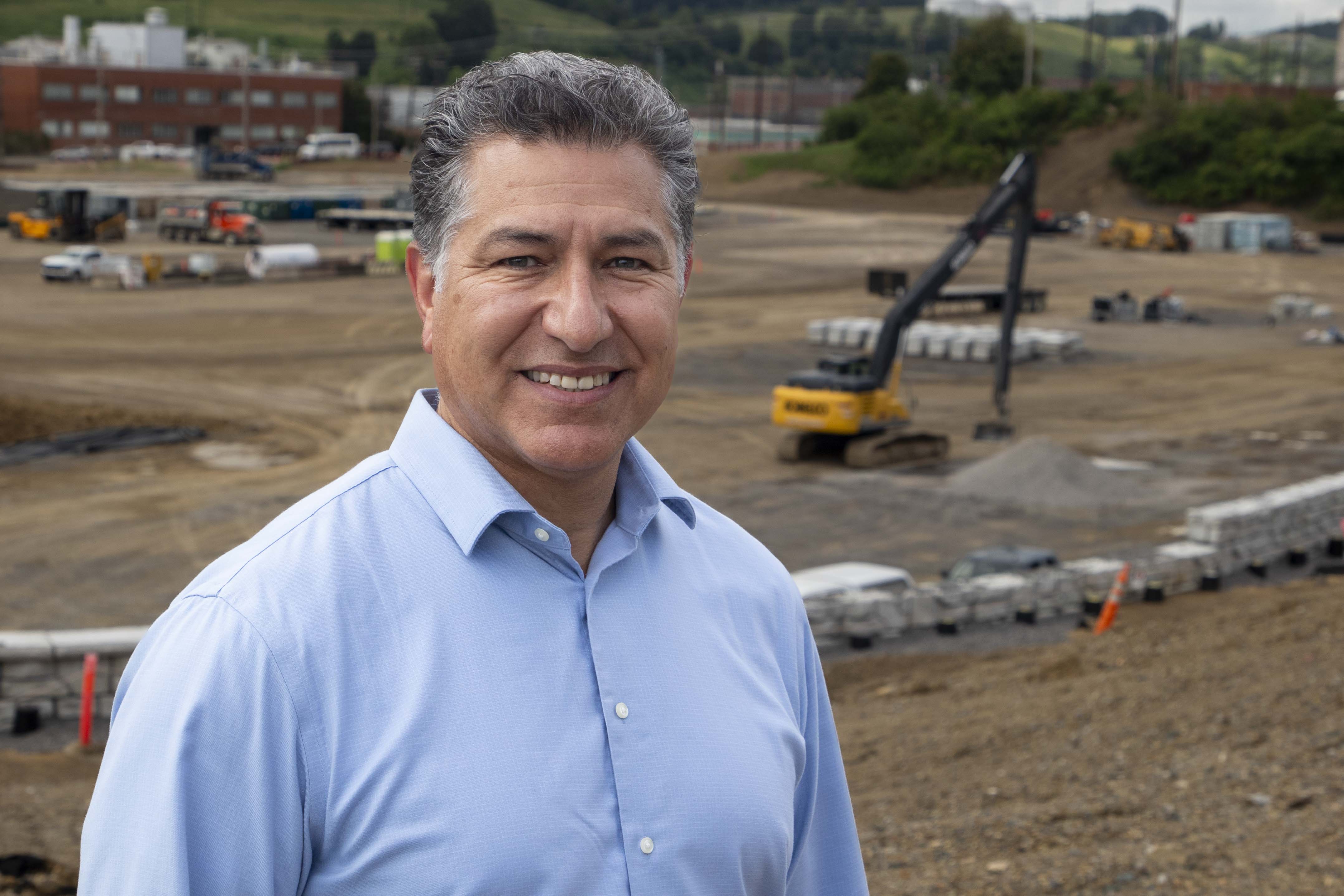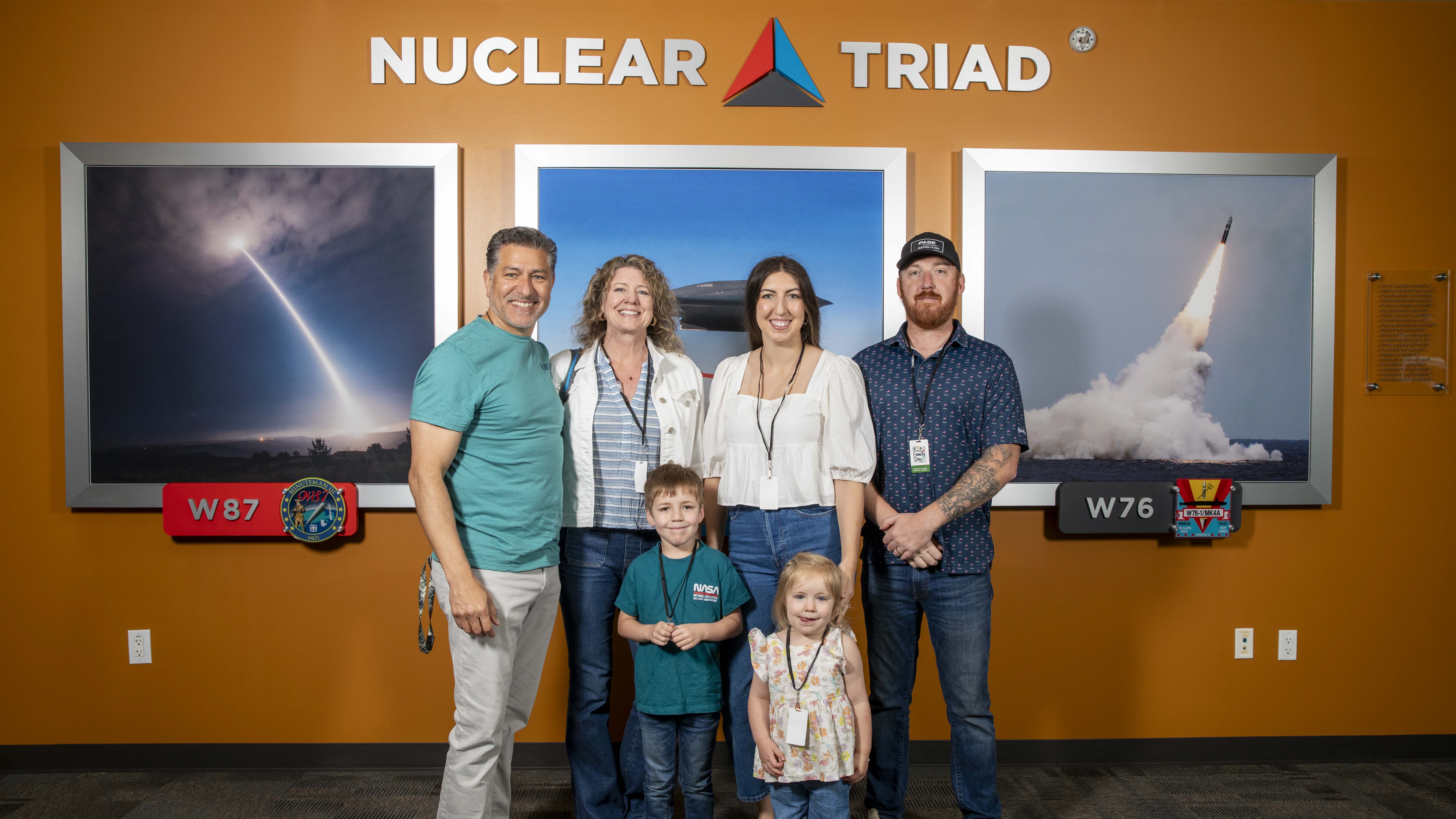
Take 5 minutes to learn about Sal Beltran, vice president of CNS Project Management. This article details his role and reinforces the diverse workplace culture CNS offers. Included in the questions is one related to a CNS performance element. All views and opinions are the employee’s own and do not necessarily reflect those of CNS.
Sal Beltran, vice president of CNS Project Management, finds himself back in the saddle in East Tennessee in more ways than one. He’s at the helm of Y‑12 Project Management in Oak Ridge during the week and in the seat of his Harley-Davidson in his spare time. At the same time, he’s leveraging time spent in the saddle out West to modernize Y‑12’s aging infrastructure.
Beltran’s first priority when he joined Y‑12 from Lawrence Livermore National Laboratory in February was to get up to speed on the massive portfolio of projects underway at Y‑12. His next was to schedule campfires across the site to reach the more than 400 people working with the Project Management organization.
“When my kids were younger, we would go horse camping in Washington, and we found the most dialogue happened when we’d sit around the campfire and talk,” he said. “Those conversations were relaxed; there were no expectations.”
Just as his family benefited from those relaxed, informal discussions, Beltran is hoping to bring the same approach to his Y‑12 family through the engagement sessions he calls “Campfires” with Project Management staff.
“It’s about connecting with the people delivering a project or operations,” he said. “Every time we have a campfire, I learn from the team, and the team learns what my priorities are. That’s the intent of the engagement sessions. You have to be able to say more than ‘I’ve been there, I’ve done that, this is how we’re going to do it.’ You have to be able to listen to the workforce there on the front lines, doing it every day.”
After graduating from Eastern Washington University, he was commissioned in the Army. Becoming an aviation officer, Beltran spent over a decade flying AH‑64 Apache helicopters before trading his flight suit for a business suit. He came to project management through roles in strategic planning, budget management, project controls, business applications, and construction with goals to deliver a tangible mission in mind.
“From my time in the military, I developed a deep sense of duty, country, mission,” he said. “After I left the military, I spent decades supporting the mission with DOE and NNSA. Working with NNSA is another way to deliver for our country and to not only deliver a project but also influence how we deliver it.”
Beltran’s career took him across the world and across the West, but he’s excited to find himself back with the Y‑12 family, where he had previously been a project manager for the Electrorefining project from 2018 to 2020.
“As a project manager at Y‑12, I had an opportunity to understand the incredible dedication and skill sets here,” he said. “Y‑12 is different than any other site in the NNSA complex. I see coming back to Y‑12 as an opportunity to deliver at another level. To come back — it’s exciting, not only because I’ve come back to CNS but because I get to enjoy Tennessee with my grandkids.”
What excites you about your new role?
What excites me the most is making a difference and contributing to the rich history of Y‑12. Our site is at a point where it needs immediate project delivery to enhance needed capacity and capabilities. We’re looking at how to streamline projects and requirements so we can deliver to the hands of our operators faster. Providing capacity and capability to enable our operators to deliver mission is crucial, especially in today’s geopolitical climate.
What is the top lesson you have learned in applying problem‑solving skills to an issue?
Problem‑solving is key in every element of executing projects. If everything worked to plan, we would push a “start” button and the project would be done. In the real world, project teams face changing conditions every day. A project team adds value to mission delivery by approaching adversity head-on and problem‑solving as challenges arise. Problem‑solving, communication, and ultimately, empowerment in the face of adversity epitomizes the one‑team approach.
What is a one‑team approach?
For me, a one‑team approach involves all members of the team having a clear understanding of project objectives and need dates, holding each other accountable and being empowered to coordinate with stakeholders to drive results. Project teams are comprised of many organizations and functions, and they must all work together as “One Team” to be successful. Fostering this mindset will be a great predictor of mission success.
Why is it important that we hold ourselves accountable in our daily tasks?
Our site’s work is critical to the nation and to the world, so meeting our commitments is imperative. We must be accountable to each other to complete our portion of the mission. Every individual on a team must be empowered to seek solutions and alternative paths to accomplish the mission. Our success is never just about delivering a project. It’s about aligning with our customers’ vision and helping them achieve long‑term goals.
What’s your favorite outside of work activity and why?
I enjoy riding my motorcycle, and I’m looking forward to reacquainting myself with the Smoky Mountains and exploring all the beauty of Tennessee. On a nice day, getting out on a little two‑lane, winding road — my wife and I just go out and enjoy the beautiful countryside.
So … what I hear you saying is that you’re going be taking on the Tail of the Dragon?
I already have.

Beltran is especially excited to spend time with his grandkids, who toured the Y‑12 site on May 3 along with many other Y‑12 families who rode tour buses during Y‑12 Family Day 2025.